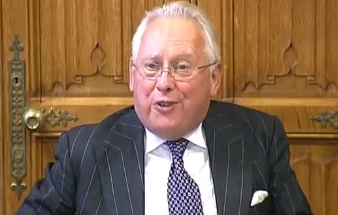The Ministry of Justice shows no sign of backing down over court fee hikes, despite a damning verdict from an influential group of MPs. The Commons justice committee called in June for an overhaul of employment tribunal fees and the scrapping of this year’s increase in the divorce petition fee. The government initially stood firm on the necessity of the fees – and a full response to the committee now suggests that position has not changed.
In its response, itself published two months late, the MoJ continues to maintain that interested parties must wait for any announcement on employment tribunal fees until the completion of the review.
There is still no date provided for when this review, intended to be made public at the end of 2015, will be published.
In response to calls to reduce the divorce fee, which increased by 34% to £550 in March, the government is unmoved.
‘Although it is too soon to draw any firm conclusions, there is no evidence so far that the fee increase has led to a fall in applications for a divorce,’ said the MoJ response.
‘Overall, we believe that the fee for a divorce is reasonable when considered against the objectives, generating an estimated £12m per annum in additional fee income as a contributions to the savings required to make sure the courts and tribunals are properly funded, and access to justice is protected.’
In direct response to calls from the committee for a graduated schedule of fee payments, the government insisted this is already in place.
Bob Neill (pictured), chair of the committee, said he will raise the matter again with his colleagues after expressing dismay at the government response.
‘It is disappointing that the government response is so negative in respect of the recommendations,’ he said.
‘Perhaps more concerning is that it is almost offensively perfunctory, appearing to have been rushed out at short notice and giving little evidence of attention paid to the committee’s details evidence and analysis.’
The Law Society strongly backed the committee's call. Society president Robert Bourns said: 'Recent fee increases should be reversed pending a proper assessment of their effect on access to justice.
'Our justice system is a public service that underpins democratic society. While it is not unreasonable to ask people to contribute to the costs of the courts they use, each of us should be able to assert and protect our rights in those courts should the need arise. For this to hold true for everyone regardless of wealth, the principle of equal access to justice must prevail over generating income when it comes to setting court and tribunal fees.'
He added that the growing imbalance created by the fee increases places 'places the courts out of reach for many small businesses and all but the wealthiest individuals in society. This puts those on lower incomes at an unfair disadvantage in a justice system that increasingly favours the better resourced.'




























8 Readers' comments